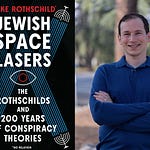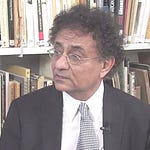
Update: May 1, 2025—The IRF fund discussed by Swell Ariel Or is now closed and no longer operating.
A little more than three weeks after the October 7 massacre, Israeli actress Swell Ariel Or was at the Orlando Film Festival for the premiere of “Kissufim.” Or, who gained international fame as the star of the hit Netflix series “The Beauty Queen of Jerusalem,” was there to showcase a movie that has taken on new significance. Set in the 1970s, “Kissufim” explores life on the kibbutz in the aftermath of the Yom Kippur War. On October 7, at least eight Kissufim residents and six Thai laborers were murdered, and at least four were kidnapped and taken to Gaza.
“They gave us a home to make this film,” Or told the Jewish Journal. “It’s really sad how relevant it is. We dedicated the film to kibbutz members who were murdered, kidnapped, or hurt.”
The 24-year-old actress stood up to reveal a message on her shirt that read, “Bring them home now.” The Israeli cast and crew were not taking any chances. They were advised by the Israeli consul to take precautions. “It’s not a Jewish film festival; it’s an international film festival, so you never know what could happen,” she said. “We had to get security really fast. No private security companies were available, so we called the police, who were really sweet and sent two cops.”
Or moved to Los Angeles about three months ago with dreams of making it big in Hollywood. But current events interfered. First, the actors’ strike, then the violence in Israel. She hasn’t gotten around to very many auditions. Instead, she’s using her platform as a social media influencer to educate the public about Israel, antisemitism, and the horrors of the October 7 attacks.
You can read my entire article at the Jewish Journal of Los Angeles.
If you’d like to listen to our entire interview, click the arrow above. You can also read the transcripts below.
Howard Lovy: Okay, where are you? You're at a conference right now, right?
Swell Ariel Or: I'm at a Film Festival in Orlando, where we're premiering our film. Sadly, it's very relevant because it's about Kissufim in the ‘70s. It mirrors what's happening now. We made the film two years ago in a kibbutz for two months. Many kibbutz members worked on the film and were extras. They gave us a home to make this film. It's set in the ‘70s, after the Yom Kippur War, and explores the relationship between Israel and Gaza. It's really sad how relevant it is. We dedicated the film to kibbutz members who were murdered, kidnapped, or hurt. We had our premiere yesterday because we were wearing this (She stands up and reveals her shirt, that says “Bring them home now”) and had to get security really fast. No private security companies were available, so we called the police, who were really sweet and sent two cops. Today, we have another screening, and about 100 Israelis have come to support us.
Howard: Were there any specific threats? Or are you just taking precautions?
Swell Ariel Or: We've been in touch with the consul, who advised us to take precautions, especially since the film is somewhat political. It's not a Jewish film festival; it's an International film festival, so you never know what could happen.
Howard: I'm doing this interview for the Jewish Journal of Los Angeles and also working on a book about combating anti-Semitism. The first question I want to ask, which I've been asking all Jews lately, is: how are you doing? I find that diving into work helps, but it doesn't make the feelings of loss go away.
Swell Ariel Or: Diving into work does help. I've opened a fund to reimburse flight tickets for soldiers and reservists who paid out of pocket. Many of my friends, like me, are 24 and recently left the Army. Due to COVID, they couldn't travel, and it's a cultural thing in Israel to travel to far-off places after military service. They had to pay for their own expensive tickets, especially when coming from remote villages in places like India or South America. That's why we opened the fund. We've raised around $200,000, which can cover 260 soldiers, but we have a waiting list of another 190. It's a big project, and it's complicated, but it's also a distraction. Our fund's philosophy is to boost morale and cheer them up. In between working on the fund, I'm doing public speaking to share the Israeli experience, which I think is crucial. American Jews need the tools to communicate about what's happening in Israel. So, while I try to distract myself with work, I'm constantly connected to the news. It's like an infusion in my blood; I can't really disconnect from it.
I'm trying to surround myself with people I feel safe with. It's the first time I'm experiencing the fear of antisemitism. In Israel, you're scared of rockets and terrorists, but you're not really scared of your neighbor calling you a dirty Jew or spitting on you. You can speak Hebrew everywhere, wear your Star of David or your Hamsa without fear. Here, it's different.
Howard: You're an Israeli in America right now, where nobody is sure if they can really count on their friends or neighbors to be supportive. Friendships are breaking up because of this. How do you feel being an Israeli in America right now?
Swell Ariel Or: I'm trying to surround myself with people I feel safe with. It's the first time I'm experiencing the fear of antisemitism. In Israel, you're scared of rockets and terrorists, but you're not really scared of your neighbor calling you a dirty Jew or spitting on you. You can speak Hebrew everywhere, wear your Star of David or your Hamsa without fear. Here, it's different. It's the first time I'm experiencing this awareness. I think it was always there, but I came to America at a time when it's really extreme in terms of antisemitism. I'm talking to my American Jewish friends, and they're giving me tools on how to be more aware and take better care of myself. At the same time, they're saying don't be afraid, don't hide, don't lock yourself at home. Be proud of who you are, just be aware. And I'm learning it.
Howard: This is something new for American Jews too. We're all shocked and surprised at the worldwide reaction. You have a social media presence; do you feel a need to counter antisemitism onlin?
Swell Ariel Or: My superpower is storytelling. This is who I am, this is how I fight. Whether it's sharing my own story or encouraging my non-Jewish friends to share it too. I ask them to think, "What if it was me? Would you speak up then?" I also share the victims' stories, not just how they died or were kidnapped but who they were when they were alive. We can't just be the victims all the time; people need to know we're talking about human beings with beautiful stories, love for life, families, hobbies, careers, and children. We're not just numbers, we're not just Israelis or Jews, we're human beings. Right now, I'm focusing on the Israeli angle because I believe that anti-Zionism is a form of anti-Semitism.
Howard: In a previous interview, you mentioned having PTSD from an attack when you were younger. Can you describe that experience and how it affected you on October 7?
Swell Ariel Or: When I was 16, I was in the wrong place at the wrong time. I witnessed a terrorist attack on one of Tel Aviv's most central streets. I don't know if you're familiar with Tel Aviv, but it's like Sunset Boulevard. Luckily, I wasn't hurt; I was across the street.
As a kid, I didn't have the tools to process what I saw. Growing up in Israel, you're aware of terrorist attacks, wars, and rockets, but you think it always happens to other people, not you. That's the naive belief. But the truth is, it's like Russian Roulette; you can't know when it will happen. To this day, I'm trying to figure out how to live with what happened. Back then, I didn't even know how to deal with it, so I didn't tell anyone. It was too complicated. I didn't tell my friends, my family, teachers—no one—because it was just too much.
When you experience trauma, you have three responses: freeze, flight, or fight. I froze and stayed in that state of mind for six months. During those months, the trauma began to manifest. It started with nightmares, and I couldn't go on the same street or take buses or be in public places. It quickly escalated to paralyzing panic attacks. I knew I had to get help. Before that, I was a happy, enthusiastic kid. So, I told my parents, and we went to a psychiatrist. I was diagnosed with PTSD and underwent CBT treatment, which helped a lot. You can't be fully cured from this trauma; you can only gain more tools to live with it.
When I was in the army, the trauma resurfaced because it was very triggering. As a soldier, you're exposed to threats and hate, and it was a big trigger for the trauma. Since then, my day-to-day life has been relatively normal. I don't have many anxiety attacks, but sometimes I have nightmares or feel like my life is under threat and keep a knife next to me because your brain is scared.
October 7 was a really bad trigger. I had just landed in LA from Toronto, where I had a public speaking event. When I read about the terrorists, it was like my nightmares coming to life. I had a panic attack at the airport, but quickly realized it wasn't going to be a short episode. I slapped myself awake and thought, "Just help, do whatever you can." So, I am scared, and it's triggering my trauma. I have a lot of nightmares and panic attacks right now, but it's nothing compared to what people are going through. I can help them, help my country, my people, and I have to do it, even if I'm scared. You have to go on. And I am scared. I want to come to this festival wearing this shirt, like, "Oh yeah, of course."
Howard: As an actress, you're acting out some painful periods of Jewish and Israeli history. I'm a fan of "Beauty Queen of Jerusalem," which covered the 1929 pogrom and the character of your mother was raped. When I heard about October 7, I was reminded of that scene in that show. Is there a feeling among the writers and actors that this is uncomfortable but important to tell?
Swell Ariel Or: Definitely, like I said before, my power is storytelling, and specifically, mine is acting and writing. There are people whose power in storytelling is cinematography or directing. We're all storytellers. The story of October 7, we're still in a big trauma, but I'm sure we're going to tell it worldwide. It's going to be hard, painful, and unbelievably uncomfortable to act, write, or direct, but we have to do it. Like the stories about the Holocaust. Unfortunately, we don't have many stories about Jews who had to flee from Yemen, Iraq, Iran, Morocco, or other Arab countries. Hopefully, there will be soon. It's not fun, but we have to.
Howard: What's your advice for everyone else? We're inundated with anti-Israel and anti-Semitic stuff online. There's an urge to fight it but also an urge to turn it off. What should we be doing?
Swell Ariel Or: I highly recommend gaining power and strength by taking care of yourself. Because if you're weak, you can't help anyone else. Whether it's therapy or a hike, if you have the privilege to do those things, do it. Then fight with whatever feels comfortable for you. Some people are comfortable showing their faces and speaking out, others are comfortable writing or volunteering or raising money. There are so many things you can do. Don't let depression control you. Take care of yourself, and then go help. We have to; it's our only tribe, you know.
Howard: What about you personally? Are you going to stay in the United States? I know you just recently moved here to try to make a big in Hollywood and it sounds like you're doing that. Real-world events are kind of interfering right now. What are your plans?
Swell Ariel Or: I can't even think of anything else right now. The strike is still on, so I don't have a lot of auditions or anything. But everything will wait. I'm young.
Howard: That's all I have. Thank you, Swell. I really appreciate your time.
Swell Ariel Or: You're amazing. Your questions are so good. Thank you for listening and engaging.
I’m writing a book on fighting antisemitism. You can support it through Kickstarter!
From Outrage to Action: A Practical Guide to Fighting Antisemitism
My book, "From Outrage to Action: A Practical Guide to Fighting Antisemitism," will be a reality with your support. My Kickstarter prelaunch page is live, and the campaign will begin next month. Now is the time for action. Check it out. After going through all the stages of grief since Oct 7, I thought about what I could do to help. The only thing I know…











